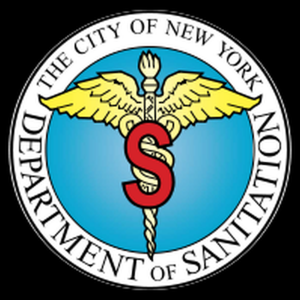 Crown Heights, Brooklyn, February 24 – New York City officials are puzzling over the Crown Heights Jewish community’s non-violent reaction to the killing of one of its members by a Department of Sanitation trash collection truck yesterday morning.
Crown Heights, Brooklyn, February 24 – New York City officials are puzzling over the Crown Heights Jewish community’s non-violent reaction to the killing of one of its members by a Department of Sanitation trash collection truck yesterday morning.
A 25-year-old Rabbinical student was crossing Carroll Street when the truck turned right from Kingston Avenue and struck him. Paramedics pronounced him dead at the scene. In reaction, the local Jewish community, primarily members of the Lubavitch sect of Hasidim, expressed their collective anger by not going on a murderous rampage through the streets.
Former Mayor David N. Dinkins, who presided over the city during a similar incident in 1991, expressed puzzlement over the Jewish reaction, contrasting it with the expected modus operandi of ethnic groups in New York. “It took my administration three days and 1200 police officers to quell the rioting and looting that followed the killing of Gavin Cato,” recalled Dinkins, referring to the seven-year-old victim of a car accident whose demise sparked violence, protest marches, and racial incitement that involved the murder of a Hasidic Jew. “I have to say I’m scratching my head at the mental processes involved here.” He wondered whether the de Blasio administration had legal recourse to demand compensation from the Crown Heights Lubavitch community for the battalions of policemen that were marshaled in vain to forestall expected unrest this time around.
The current mayor was hesitant to issue a judgment immediately. “We’re working with community leaders to clarify what exactly happened here,” de Blasio said at the scene of the accident. “It would be imprudent to assume at this point that any community-wide initiative is at play here, when this outburst of non-rioting might well be the doing of individuals not-acting alone.” He promised a thorough investigation.
Sanitation Department employees remain on alert, knowing that they continue not to be targets for possible revenge. “We’re all uneasy,” admitted George Martinez, 34, a shift supervisor for area collection crews. “I have to say that I, at least, am nervous about what happens the next time the crews go out there – will they encounter nobody at all? Will they be faced with a tranquil environment? Will there be people just going about their business as on any other day? Those are all distinct possibilities we have to be prepared for.”




